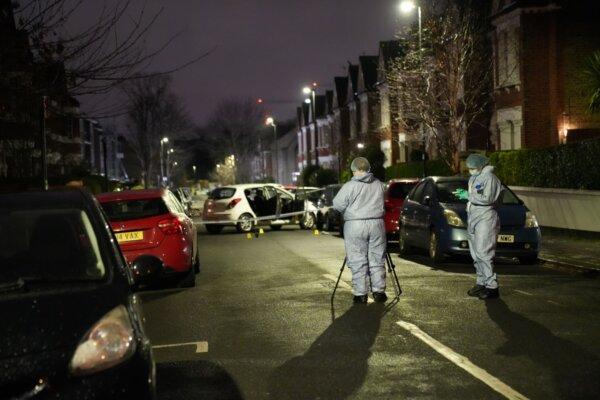The suspect in a chemical attack on a woman and a child in Clapham, south London, arrived in Britain illegally from Afghanistan and was later convicted of a sexual assault, it has emerged.
The 31-year-old woman and her youngest daughter, aged three, are believed to have suffered “life-changing” injuries.
On Thursday, the Metropolitan Police identified Abdul Shokoor Ezedi, 35, as the suspect and released a photograph of him, taken from CCTV in a supermarket later on Wednesday evening, showing him with a black scar on his face.
The Crown Prosecution Service confirmed on Friday that Ezedi had pleaded guilty to one charge of sexual assault and one of exposure and was sentenced at Newcastle Crown Court on Jan. 9, 2018.
He was given two separate jail sentences of 36 weeks and nine weeks, both of which were suspended for two years.
Ezedi—who arrived in Britain in the back of a lorry in 2016—was released from the supervision of the probation service in 2020 and later granted asylum, apparently having persuaded the authorities he had converted to Christianity and would therefore be in danger if he returned to his native Afghanistan.
Jenrick Says Case Raises ‘Very Serious Concerns’
Robert Jenrick, a former immigration minister, said the home secretary, James Cleverly, needed to carry out a “detailed review” of how Ezedi was granted asylum.Mr. Jenrick told BBC Radio 4’s “Today” programme the Ezedi case raised, “very serious concerns.”
He said: “It appears from what little we know of this case, that this is an individual whose asylum or humanitarian protection in the UK was granted by a tribunal, so probably by a judge rather than Home Office officials, despite the fact that he had been convicted of a sexual offence and on the basis of evidence which, we shall have to see, may well be spurious or insubstantial, such as this suggestion that he had converted to Christianity.”
Mr. Jenrick said, “We shouldn’t jump to conclusions, and I would expect the home secretary to conduct a detailed review of what has happened and what may have gone seriously wrong in this case, and to put that information in the public domain, such is the public interest.”
Mr. Cleverly said the incident was “appalling” and said his thoughts were with the victims and the “brave” members of the public who intervened to protect the woman and her children.
“I urge the public to support the Metropolitan Police’s appeal and to come forward if they have any information,” he added.

Last Seen in North London
The Metropolitan Police said he was last spotted in a Tesco Express shop on Caledonian Road in north London, at 8:48 p.m. on Wednesday.Superintendent Gabriel Cameron said: “The image is taken from the Tesco store, where Ezedi is believed to have purchased a bottle of water. He left the shop and turned right.”
“The image shows Ezedi with what appears to be significant injuries to the right side of his face. This makes him distinctive. If you see Ezedi, call 999 immediately. He should not be approached,” he added.
It has emerged that after the attack, the suspect tried to drive away but crashed into a stationary car and fled on foot.
The chemical used in the attack, which was originally reported to be acid, Ezedi is now believed to have been a corrosive alkaline substance such as bleach or drain cleaner.







